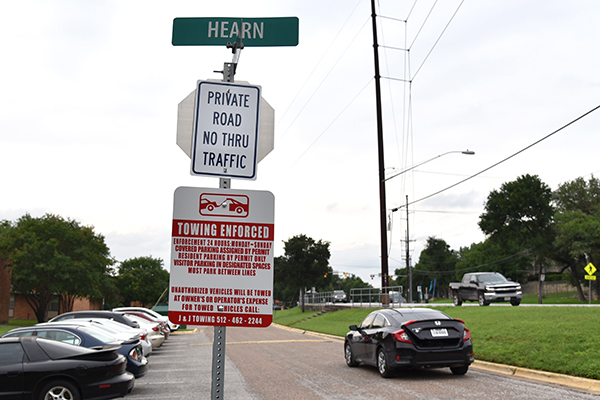Non-University affiliates can be considered trespassers if they engage in recreational activities on University property, according to a Texas Supreme Court opinion issued Friday.
The highest court in the state dismissed Austin resident April Garner’s case, who claimed the University was liable for her injuries after a University employee backed a truck into her as she rode her bike on a private road, according to the opinion. The road is often used by the general public as a shortcut to avoid Lake Austin Boulevard, according to the suit.
However, because she was not a University student, employee or invited guest, the court agreed with UT’s argument that she was a trespasser and that UT could only be held responsible for intentional injuries.
According to the suit, Garner claimed the University’s immunity from the suit was dismissed under the Texas Tort Claims Act, which waives “sovereign immunity” for claims involving injury in motor vehicle accidents caused by negligence by a government employee. The University and Garner’s lawyer did not immediately respond to a request for comment.
The University initially filed a motion to dismiss Garner’s case, claiming it was not liable because Garner was a trespasser on private property under Texas common law and did not have permission to be there. The district court dismissed the motion, allowing the case to proceed.
In 2017, the University appealed the case and claimed Garner was a civil trespasser under the Recreational Use Statute. Garner claimed UT’s interpretation of the statute was so broad, anyone on University property, including students, faculty and staff, would be considered civil trespassers because activities such as hiking and biking are recreational under the statute.
The statute protects landowners’ liability when allowing the public to use land — including government property — recreationally. Under the statute, Garner would have implicit permission to be on University property. However, she would also be considered a civil trespasser and would need to prove the University harmed her intentionally or through gross negligence.
Justice Bob Shannon in the 3rd District Court of Appeals wrote an opinion in favor of Garner, stating because the University did not open the private road for public use, the Recreational Use Statute does not apply and Garner was not a civil trespasser.
The University appealed the case a second time to the Texas Supreme Court in August 2018, claiming Shannon misinterpreted the statute and argued Garner was a trespasser whether or not she had implied permission to bike on University property.
The Supreme Court ruled in favor of the University, stating that if a person uses government-owned land for recreation the governmental unit does not owe them more care than a trespasser.
“Because the Recreational Use Statute applies, and because Garner does not assert claims premised on conduct involving malicious intent, bad faith, or gross negligence, the Tort Claims Act does not waive the University’s immunity from suit,” the Supreme Court wrote. “Accordingly, without hearing oral argument, we grant the University’s petition for review, reverse the court of appeals’ judgment, and dismiss the case for lack of jurisdiction.”


















